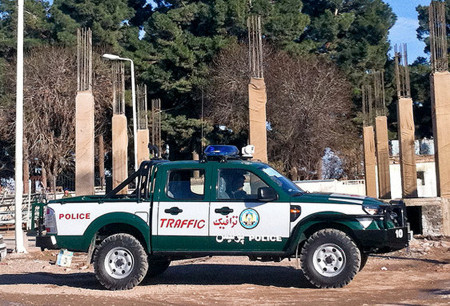By Abdul Razaq Moheq
The elected assembly for the western Afghan province of Herat is under fire from police and prosecutors, who accuse its members of corrupt practices including getting crime suspects released.
Allegations of interference in the affairs of local government and policing reflect tensions between the 19-member elected council and the executive, local observers say.
The chief of police in Herat province, General Sayed Aqa Saqeb, openly complains of interference by some of provincial councillors.
In one case, he said, police arrested a man accused of instigating trouble against the security forces, but was released soon afterwards after someone from the council intervened on his behalf. Saqeb said this kind of thing would not only increase crime rates as perpetrators acted with impunity, but would dent police morale.
Maria Bashir, the chief prosecutor in Herat, confirmed that this was going on – her office had also been approached by assembly members asking for suspects to be freed or to get reduced sentences.
“Unfortunately, certain representatives of the people on the provincial council try to make government agencies do illegal things, abusing their titles and exerting pressure and influence,” she said.

Herat police say criminals often get released after elected councillors intervene on their behalf. (Photo: Peretz Partensky / Flickr)
According to Bashir, many councillors were ignorant of Afghan law, the extent of the powers granted them, and the demarcation between their role and that of other institutions of state.
Others argue that ignorance of the law may have worked as an excuse in past years, but the current assembly is the second to be elected, so its members should be aware of the rules by now.
Abdol Razaq Rahmani, director of the local passport department, confirmed that his staff had been asked by councillors to issue documents on behalf of favoured constituents.
Pointing at his mobile phone, he said, “We don’t have blank passports. I receive so many calls from officials that I finally had to switch my phone off today.”
Gholam Mahbub from the Zenda Jan district said his own experience showed how having the right connections was key to getting a passport.
“A friend of mine came with me to the city to obtain a passport and he managed to get one in two days because he knows a provincial councillor,” he said. “I have spent the past ten days trying to get a passport, as I don’t know anyone.”
The council’s chairman, Abdul Zaher Faizzadah, rejects all allegations of wrongdoing by his fellow-members.
“Members of the provincial council have never made illegal requests of government agencies,” he said. “Whenever they have approached government agencies, it has only been to resolve people’s problems, something that lies within their mandate and indeed is their legal obligation.”
Faizzadah said the accusations made against the council reflected a deep-seated hostility to its members.
However, at least one assembly member told IWPR that colleagues had acted outside the law.
“The provincial council’s members are part of the same society in which corruption and law-breaking exist,” the councillor said. “My own constituents have illegal demands of me as well, but I explain to them that I am not authorised to do so, and I try to convince them of this.”
A second councillor also told IWPR of corruption and abuse of power by assembly members, saying, “I cannot defend thieving representatives,” but later retracted the remarks.
Abdul Qader Kamel, head of the Association of Political Parties and Civic Institutions in Herat, said the behaviour of council members was likely to erode not only their credibility, but people’s faith in elections in general.
“It is not the job of provincial councillors to apply to government agencies in pursuit of their personal interests or matters relating to their friends, nor to demand illegal things from them,” he said.
Bashir said any councillor who committed an offence was liable to face prosecution by her office, or by military prosecutors if the crime related to security issues. But she acknowledged that no prosecutions had yet been brought, and no cases were pending.
Abdul Razaq Moheq is an IWPR-trained reporter in Herat, western Afghanistan.



